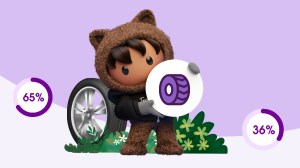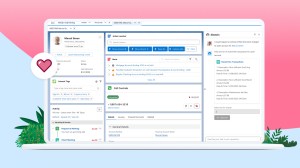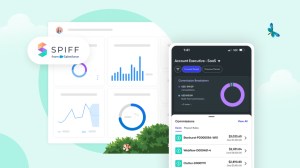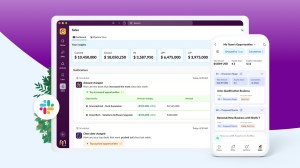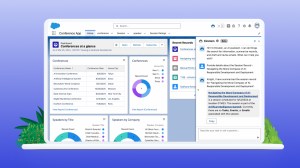A Salesforce survey of over 2,000 car owners and lessors in the United States found that while drivers are generally willing to trade personal data for connected car benefits — like advanced personalization and cheaper insurance — few drivers actually understand what a ‘connected car’ is and what data is actually being collected. This indicates an opportunity for automakers to better define and communicate both their branded connected car experiences and their data policies for consumers.
Why it matters: The automotive industry is undergoing a massive revolution as it transitions to an era that will be defined by electric vehicles and connected cars, that can seamlessly communicate with one another, their manufacturers, and their surrounding infrastructure to enhance safety, efficiency, and the overall driving experience. Connected cars are forecasted to make up 95% of all vehicles on the road by 2030, with each one generating an estimated 25 gigabytes of data per hour — as much data as it would take someone to stream 578 hours of music.
By the numbers:
Low familiarity and use of connected car benefits conflicts with consumers’ steady appetite for premium driving experiences
- Over two-thirds (65%) of drivers are unfamiliar with the concept of a ‘connected car,’ including more than a third (37%) having never heard the term before.
- Yet when given a definition, drivers ranked connected features* as nearly as important as a car’s brand.
- However, 66% of drivers reported they either don’t have or aren’t using connected features* in their car.
- Almost as many drivers (62%) reported they don’t have or aren’t using apps like Apple CarPlay and Android Auto that allow them to do things like easily make calls, stream music, and use preferred navigation apps.
- When it comes to their next vehicle purchase, drivers showed they are most likely to be willing to pay a premium for advanced features — like driver assist (43%), touchscreens (33%), and smartphone integration (31%).
- But, just 25% of drivers said they were willing to pay more for electric or hybrid vehicles, and just 9% would pay more for in-car apps, games, and videos.
Drivers willing to trade data for personalization, but seek opt-in autonomy
- More than two-thirds (68%) of drivers believe automotive companies should be able to collect personal data, but only 5% say that collection should be unrestricted. Many more (63%) are comfortable with this collection only on an opt-in basis.
- Drivers report being willing to trade personal data for valuable benefits:
- 67% of drivers are willing to trade personal data for better insurance rates (e.g., lower rates for safer driving).
- 43% of drivers are willing to trade personal data for advanced driver personalization (e.g., personal driver profiles so the seat, mirror, or entertainment is personalized).
- 36% of drivers are willing to trade personal data for enhanced personal safety features like real-time vehicle health monitoring and alerts.
Drivers give green light to vehicle data, pump the breaks on more invasive data collection
- More than half (54%) of drivers are comfortable with cars collecting vehicle diagnostics data.
- Approximately one-third of drivers are comfortable with data collection on seatbelt usage (35%), driving speed (34%) and location, and route history (31%).
- Less than a fifth of drivers are comfortable with more invasive types of data collection — like voice recordings (17%), biometrics (13%), and text messages or voice recording data (12%) — something that is legal for automakers to collect today.
The Salesforce perspective: “As cars become more connected, evolving into computers on wheels, they’re not just becoming safer and more personalized, but more sustainable and enjoyable to drive. However, it’s crucial for automakers to effectively communicate the value of these new, smart vehicles and their advanced, connected features to bring customers into the future of transportation,” said Achyut Jajoo, SVP & GM of Manufacturing and Automotive, Salesforce.
Automakers have an incredible opportunity to put their customers’ privacy at the heart of their connected vehicle strategy.
Achyut Jajoo, SVP & GM of Manufacturing and Automotive, Salesforce
- “Automakers have an incredible opportunity to put their customers’ privacy at the heart of their connected vehicle strategy. By ensuring that the immense wealth of data that connected vehicles will generate is treated with the highest levels of trust and transparency, letting drivers opt-in to collection and using that data to deliver better, more personalized driving experiences, automakers can build brand loyalty and life-long customer relationships in the connected car era,” he continued.
Connected Cars and the Data Exchange
Uncover insights from over 2,000 car owners and lessors in the United States.
More information:
- Dive deeper on these insights and what car features matter most to drivers here.
- Learn more about Salesforce’s automotive innovations.
In partnership with YouGov, Salesforce conducted a double-blind survey among 2,188 U.S. car owners and lessors. The data was gathered to reflect census demographic representation and fielded between December 10-16, 2023.
*includes Apple CarPay/Android Auto integration, gaming or video streaming, driver assist features, wi-fi/in-car data, smartphone app functionality (e.g., remote lock, remote start), emergency/assistance services (e.g., OnStar), touchscreen console, and over-the-air (OTA) software updates.
